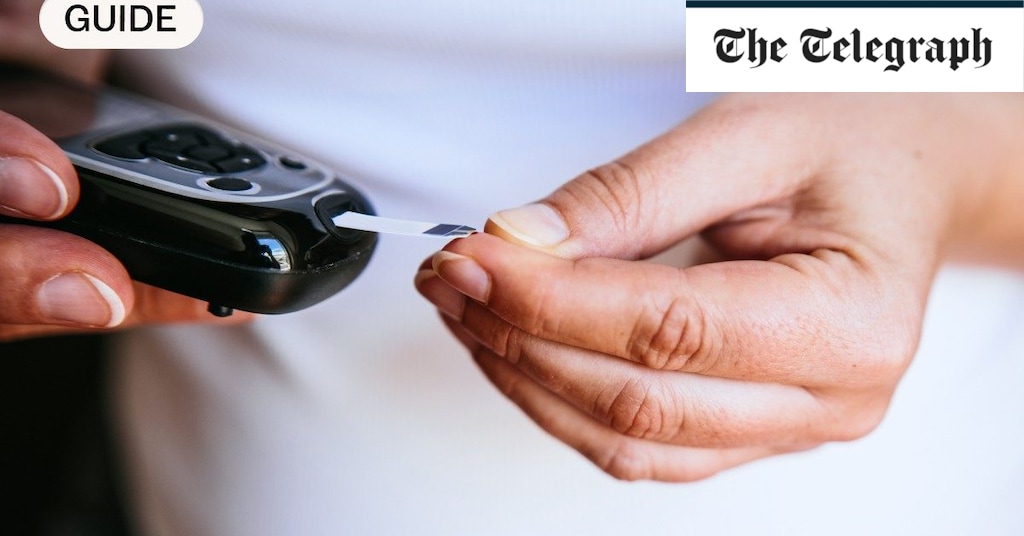“Usually between eight and 10 weeks of pregnancy, when you go to your first midwife appointment, your midwife will ask about things that might put you at higher risk of gestational diabetes [see below],” says Hatia.
If you’re at higher risk, you’ll be offered a test for gestational diabetes at between 24 and 28 weeks, or sooner if you’ve had gestational diabetes before (although you’ll be tested earlier if you’ve had it before).
What is the test for gestational diabetes?
The main test to diagnose gestational diabetes is a blood test known as the oral glucose tolerance test (OGTT). “This is a simple test that doesn’t harm you or your baby,” says Elvin. “After not eating or drinking anything except for water for eight to10 hours, you’ll have a blood test to measure your blood glucose level. You’ll then be given a sugary drink and have your blood tested again after two hours of resting to see how your body is dealing with the glucose.”
However, Elvin says if you have symptoms of diabetes at any time, or any concerns during your pregnancy, it’s important to discuss them with your healthcare team. “GDcan develop at any time during pregnancy, so if you develop any symptoms, even if you’ve earlier tested negative, it’s important to talk to your midwife about this,” she says.
How does gestational diabetes affect your pregnancy?
“Most people with GD have healthy pregnancies and babies, as long as it’s diagnosed and their blood sugar levels are managed,” says Amina. However, problems can arise when GD isn’t diagnosed or managed properly.
These can include, says Hatia:
- Low blood sugar or jaundice in your baby
- A bigger than average baby because of too much amniotic fluid
- Pre-eclampsia
- In rare cases, stroke, liver failure or fits
Unmanaged GD can also increase the risk of pre-eclampsia, a condition that causes high blood pressure during pregnancy and after labour. If pre-eclampsia isn’t diagnosed and monitored, in rare cases it can lead to serious complications for the mother, such as stroke, liver failure and fits, while increasing the risk of low birth weight and premature birth.
Elvin adds: “As well as the physical impact, some women feel guilty about their diagnosis or anxious they might hurt their baby. Other women have told us they feel judged by family and friends leading to feelings of shame and isolation. It can be worrying to be told you have gestational diabetes and we would encourage women to seek support from their midwife or other healthcare professional if they’re struggling emotionally.”
The causes of gestational diabetes
“We don’t know exactly why some people get GD and others don’t, but there are some things that put you at greater risk,” says Hatia.
These risk factors include:
- Having had GD before
- Having a large baby (4.5kg/10lb at birth) before
- Being very overweight with a body mass index of over 30
- Having a parent or sibling with diabetes
- Being of a black, Middle Eastern or south Asian heritage
- Having polycystic ovary syndrome (PCOS)
- Whether you’ve had a gastric bypass or other weight-loss surgery
Women over 40 are more likely to experience gestational diabetes, and the NHS currently recommends GD screening for pregnant women over 40.
Can you prevent it?
It’s not always possible to prevent GD, but there are things you can do to reduce your risk.
“If you’re planning a pregnancy, or pregnant, it’s important to try and eat a healthy balanced diet, exercise regularly and maintain a healthy weight,” Hatia advises. “If your BMI is outside the healthy range, talk to your GP about changes you can make either before pregnancy or if you are pregnant. They can advise you on the safest option to ensure you are able to be a healthy weight for you.”
